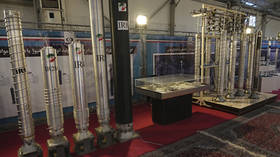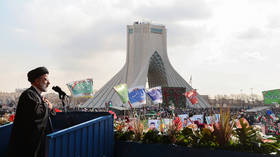Iran reacts to uranium claim

Tehran has rejected as misleading a Bloomberg report, which claimed that the International Atomic Energy Agency (IAEA) was investigating how the country enriched uranium “to levels just below that needed for a nuclear weapon.”
The news agency cited two anonymous diplomats, who alleged that the UN nuclear watchdog found uranium of 84% purity, or “just 6% below what’s needed for a weapon” in Iran, Bloomberg explained in its article, published on Sunday.
Responding on Monday, Behrouz Kamalvandi, spokesman for the Atomic Energy Organization of Iran (AEOI), said the piece was “slander and a distortion of the facts”.
“The presence of uranium particles above 60% during the enrichment process does not mean enrichment above 60% level,” he told IRNA news agency, claiming that in publishing the story, Bloomberg was serving as a tool of anti-Iran pressure.
Bloomberg did, however, acknowledge the possibility that the sample was found after unintended accumulation in an enrichment centrifuge cascade.
The IAEA has commented on the news by stating that it was “discussing with Iran the results of recent Agency verification activities” and would report the outcome to its board of governors when appropriate.
Iran agreed to impose restrictions on its nuclear industry, including enrichment activities, under a 2015 deal with world powers. The agreement was torpedoed by US President Donald Trump, who pulled out in 2018 to pursue a so-called “maximum pressure” campaign of sanctions.
Iran eventually started reneging on its commitments, and announced it was enriching uranium to 60% purity at its Natanz facility in 2021 and at the Fordo site in 2022.
The nuclear deal, known as the Joint Comprehensive Plan of Action, was touted as a way to prevent Iran from acquiring a nuclear weapon, an ambition that Tehran denies having.













